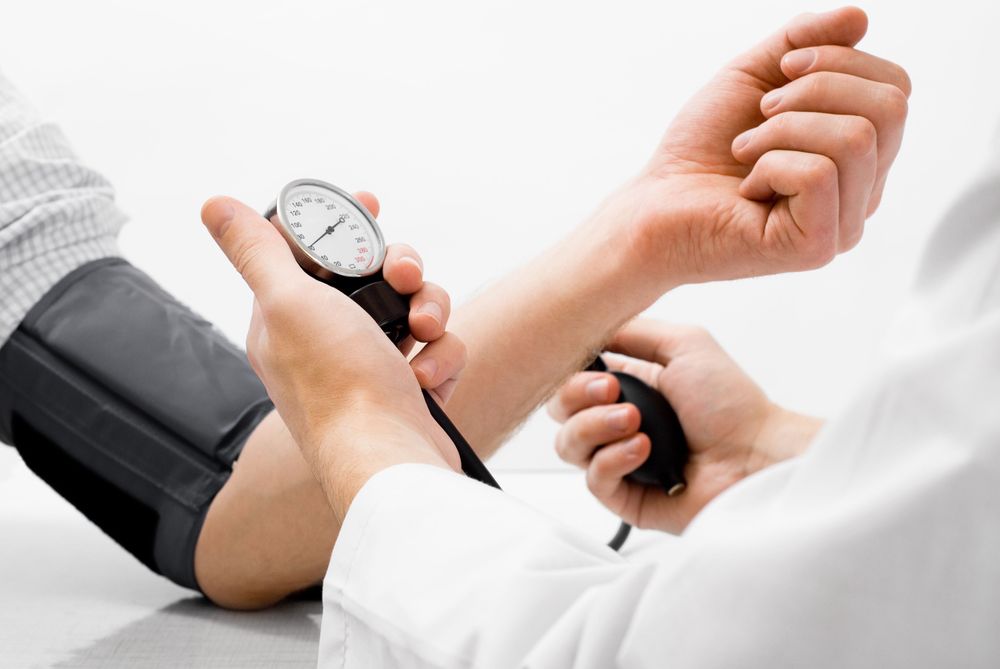
How can I improve my health?
Taking steps to improve your health is about more than following the latest trend or dieting fad. It’s about making sustainable changes that support your overall wellbeing – physically, mentally and emotionally. By understanding your body, recognising potential warning signs and adopting consistent healthy habits, you can significantly enhance your quality of life.
In this guide, we’ll explore how to improve your health, highlight key signs of poor health and provide practical strategies to build habits that last. Whether you’re looking to boost energy, manage stress, or reduce health risks, these steps can help you take control of your wellbeing.
What are the signs of poor health?
Before you make lifestyle changes, it’s important to recognise potential indicators that your health might need attention. These signs are early warnings that your body is under stress or that certain systems aren’t functioning optimally. Common signs of poor health include:
-
Persistent fatigue or low energy – feeling drained even after sufficient sleep can signal nutritional deficiencies, stress or other underlying health conditions.
-
Digestive issues – frequent bloating, constipation or stomach discomfort may indicate dietary imbalances or gut health concerns.
-
Unexplained weight changes – sudden weight gain or loss without lifestyle changes can be a symptom of hormonal imbalances, thyroid issues or other metabolic conditions.
-
Sleep disturbances – difficulty falling asleep, staying asleep or waking up unrefreshed can affect your physical and mental health.
-
Mood changes – increased irritability, anxiety, or low mood can point to nutritional deficiencies, stress or inadequate lifestyle balance.
-
Frequent illness or slow recovery – regular colds, infections or delayed healing may suggest a weakened immune system.
Identifying these signs early allows you to take a proactive approach to health improvement, rather than waiting until symptoms become severe.
What are 10 ways to improve your health?
There are many ways to enhance your health, but the most effective approaches focus on sustainable, evidence-based habits. Here are 10 ways to improve your health, combining lifestyle changes, nutrition and mindful practices.
1. Prioritise a balanced diet
Nutrition forms the foundation of your health. Eating a variety of nutrient-rich foods helps maintain energy, supports immune function and reduces the risk of chronic conditions. Include:
-
Plenty of vegetables and fruits for vitamins, minerals and fibre.
-
Lean proteins, such as fish, poultry, beans and legumes.
-
Whole grains instead of refined carbohydrates.
-
Healthy fats like nuts, seeds, olive oil and avocado.
Avoid overly restrictive diets or extremes. Consistency and balance matter more than perfection.
2. Stay hydrated
Water is essential for every bodily function, from digestion to circulation and cognitive performance. Aim for at least 1.5 to 2 litres of water daily, adjusting for activity levels and climate. Herbal teas and water-rich foods can supplement your hydration.
3. Engage in regular physical activity
Exercise strengthens your muscles, supports cardiovascular health, improves mood, and helps manage weight. Aim for at least 150 minutes of moderate activity per week, such as brisk walking, swimming or cycling. Include strength training twice a week to maintain muscle mass and bone density
4. Prioritise quality sleep
Sleep is vital for physical recovery, hormonal balance, and mental clarity. Adults typically need 7-9 hours per night. Establish a consistent sleep schedule, reduce screen exposure before bed and create a calm, dark environment to support restorative sleep. To find out more about the role sleep plays on your health and discover tips to boost your sleep quality, check out our guide 'Why is sleep important?'
5. Manage stress effectively
Chronic stress can negatively affect physical and mental health. Incorporate stress management techniques such as mindfulness, meditation, deep breathing exercises, journalling or gentle yoga. Regular breaks and time in nature can also support stress reduction. Discover more ways to reduce your stress and cortisol levels.
6. Monitor key health metrics
Regular health checks provide valuable insights into your wellbeing. Blood pressure, cholesterol, blood sugar and vitamin levels are key indicators of overall health. Knowing your metrics allows you to make informed lifestyle changes and monitor progress over time.
7. Maintain a healthy weight
A healthy weight supports metabolic function, cardiovascular health and joint integrity. Focus on gradual, sustainable changes in nutrition and activity rather than quick fixes.
8. Limit harmful substances
Reducing or avoiding smoking and excessive alcohol intake significantly lowers the risk of chronic disease. Even small reductions can improve energy levels, immune function and long-term wellbeing.
9. Foster mental and social wellbeing
Mental health is deeply connected to physical health. Maintain supportive social connections, engage in enjoyable activities, and seek help when needed. Mindset practices like gratitude, reflection and goal-setting can also support emotional resilience.
10. Support your health with professional guidance
Professional support, such as consultations with healthcare providers or wellbeing services, can help you personalise lifestyle changes safely. Private health assessments, like those offered by Bluecrest Wellness, provide detailed insights into your current health, helping you identify areas for improvement and monitor your progress.
How lifestyle changes complement health assessments
While adopting healthy habits is important, combining them with regular health assessments allows you to make informed decisions. Comprehensive health checks can identify risk factors for heart disease, diabetes and other conditions before they become serious.
By understanding your current health, you can tailor nutrition, activity and lifestyle choices safely. For example:
-
Blood test results can highlight deficiencies in iron, vitamin D, or cholesterol, guiding diet adjustments.
-
Cardiovascular checks can inform exercise intensity and focus.
-
Health assessments can track the effectiveness of changes over time, providing motivation and reassurance.
Bluecrest Wellness offers a range of private health assessments across the UK, making it easy to integrate actionable insights into your wellbeing plan.
Frequently asked questions
What are the signs of poor health?
Signs include persistent fatigue, digestive issues, unexplained weight changes, sleep disturbances, mood changes, and frequent illness. Recognising these early allows for timely lifestyle interventions.
How long does it take to see improvements in health?
Improvements vary depending on habits, consistency and individual factors. Small changes can have noticeable effects within a few weeks, while long-term benefits build over months.
Can health assessments support lifestyle changes?
Yes, they provide insights into key health markers, helping you make informed, safe choices and track progress effectively.
Do I need professional guidance to improve my health?
While you can adopt many habits independently, professional support, such as private health checks or wellbeing services, can personalise your plan and ensure it is safe and effective.
Get a health assessment for peace of mind
Improving your health is about taking consistent, informed steps that support your mind and body. By combining lifestyle habits with insights from health assessments, you can build a plan that is sustainable, personalised and effective.
Bluecrest Wellness offers private Health MOTs across the UK, providing accurate, fast, and reliable results through fully accredited laboratories. Alongside these insights, you can take actionable steps to enhance nutrition, activity, sleep and overall wellbeing safely.
Need help? Call free on
to speak to one of our team.

Anna Jones
Chief Nursing Officer, Bluecrest
Graham Jones
Medical Writer

















